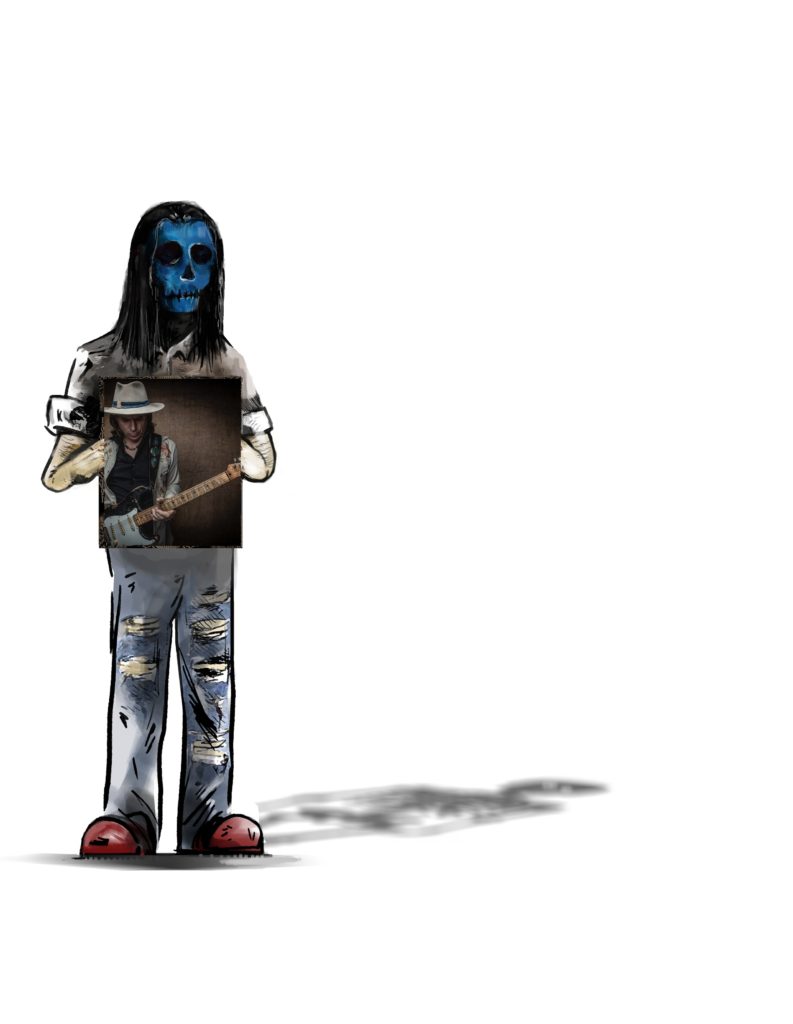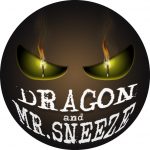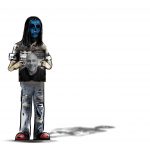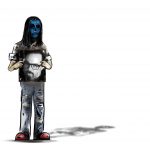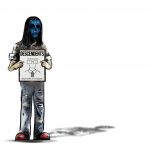Ian Moore
Ian Moore
If you call Texas home and have never heard of Ian Moore, you may as well hang your hat under a rock. Ian has been playing guitar better than most for as long as I can remember.
His self-titled record, Ian Moore is a must. I quite like the song Blue Sky because I find the lyrics touching. But there is a song on a more recent record that really gets me going. It’s called Lords of Levee. Check out the lyrics to the chorus.
Say everything that their talking about…
With their defensive and their righteous shouts to the skies.
And it’s easy when you’ve got a crowd…
When your voice can rise up to the sound of the times.
Fantastic! That one gives me chills and it’s insightful too.
I asked Ian which record is his favorite and in his own words, “I am fondest of the 3 mid period records. To me, they are one in an arc. ‘Luminaria’, ‘To Be Loved’ and ‘El Sonido Nuevo’.”
The last time I saw Ian was at the celebration of life for a dear friend who’d unexpectedly passed in 2019. It was a sad day, but Ian reminded me of a funny incident from years prior. We ran into each other when I was on tour with Macy Gray. Ian was an attendee along with his brother at an open-air festival called Bumbershoot in Seattle. Macy was on a co-headline bill with the Roots, who were growing quite popular at the time. Unfortunately, the Roots decided to double book themselves that night. Meaning that they had two commitments at the exact same time.
Imagine paying good money to see your favorite band, sweating in the sun all day, surrounded by thousands of other anticipating fans and the band doesn’t show up. We thought for sure that a riot would ensue, because instead of the Roots it was their crew who were scheduled to play the show.
Bad call!
The moment Macy was done performing I told Ian and his brother what was going on and, we agreed that we should get back stage…and fast. So, we stepped into a sea of expectant fans with little time to get clear of them before they got wind that the Roots were not there.
The audience was huge, so getting through them wasn’t easy. Imagine one of those over-the-top Lord of the Rings moments surrounded by a gazillion mindless Orcs. You know the phrase, “you shall not pass.” Alright maybe that’s a bit dramatic, but you get the idea.
Once on stage, we looked out into the massive audience moments before the Roots or rather fake-Roots aka their crew began to play.
Ian had described the entire event as, “surreal.” Macy and I shared an anxious look that said, “oh boy. Here we go.” And here’s the odd thing. Despite a sea of anxious teenagers waiting all day in the sun to see them…to my everlasting relief, nothing happened. Yep – you got it. Don’t ask me how they pulled that off, but they did. What a ruse…or perhaps a Christmas miracle in July. I don’t know, but thank goodness no one was hurt. Ha – maybe they were mindless Orcs after all. Alright, that’s harsh. I’ll take it back…kinda.
Anyway, enough of story time. Let’s get back to why we’re here – Ian Moore. We could talk about his skills until we’re blue “pun intended” in the face, but I’m not interested in that. I figure that anyone who can write lyrics like Lords of Levee has something interesting to say about the world and finding a better way. A better way of what, you ask. Well, I’d say at this point…just about anything, or rather everything. The news, for example, is a daily blast of what’s not working. It’s keeping everyone focused on the wrong things.
Personally, I’d like to hear a better spin on the world and look for what is working. I thought that I’d start this blog up again by asking Ian his thoughts, because quite frankly I’m tired. Tired of what you ask?
Come on…do you really need to?
Without further ado…Ian Moore.
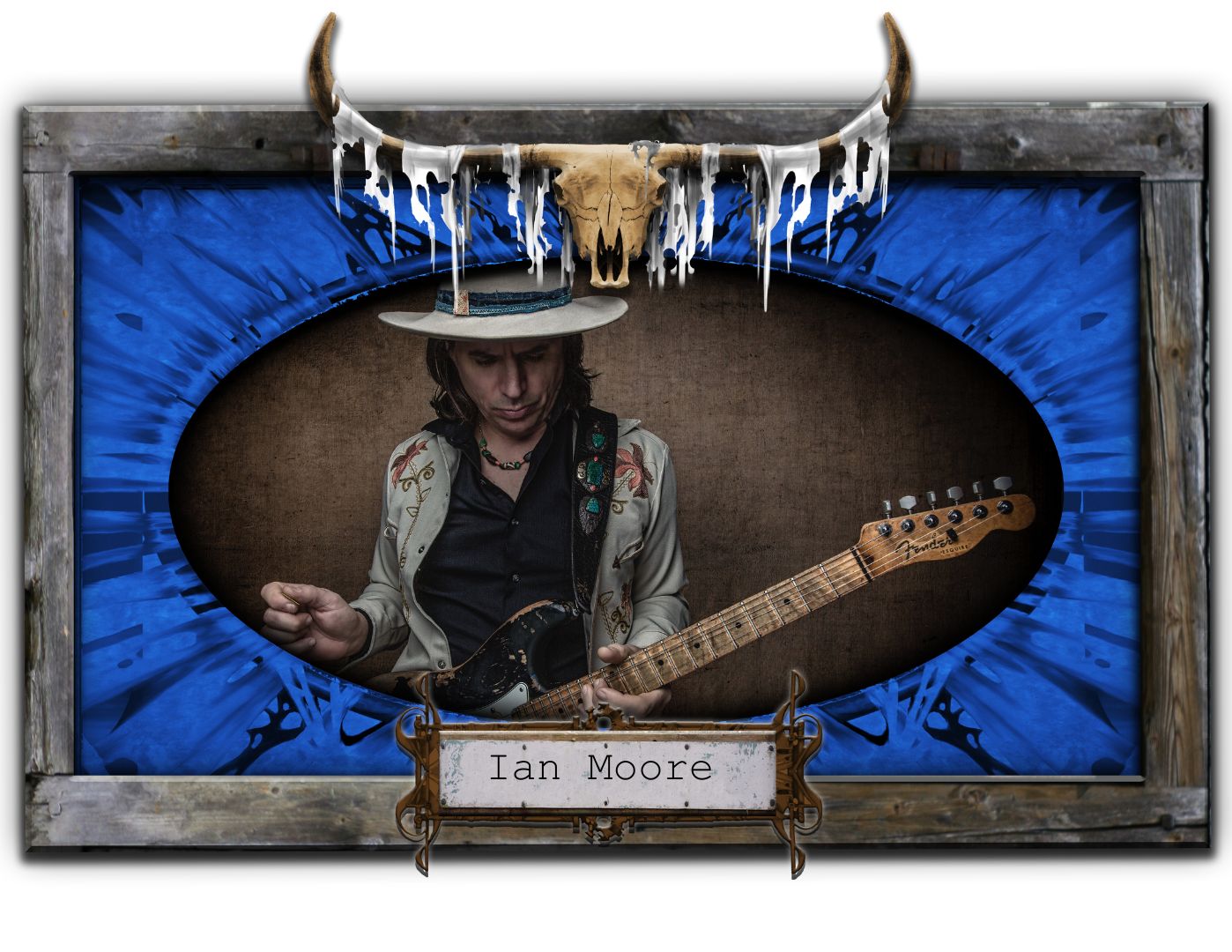
Q: What is your favorite sandwich and who makes the best one?
Spending my life touring has put me on the dark side of the sandwich world. Too many of them, and too many bad ones, so I’m not really a sandwich guy. That said, Paseo in Seattle has the best Cuban sandwich I’ve ever had. I know! Sounds crazy, but the Paseo press is insane.
Q: What is your favorite meal that your mom makes?
My mom was diagnosed with cancer when I was 7 years old. A big part of who I am came from that moment. She spent much of my life fighting for her life, and I learned how to cook. Before she got sick, she was really into ethnic foods (something I got from her) and when she passed, her molcajete (given to her by Diane Kennedy) was the thing that I remember her through.
Q: How did you meet your best friend?
In Austin, when I was in 6th grade, the school district tried a new take on integration, by bussing students all over town. It was a messy ordeal that didn’t work out the way I imagine they had hoped it would. I was a huge music fan and obsessed with the Beatles. I walked onto the bus, and there was a kid with this crazy head of hair, wearing a military jacket. We made eye contact and I sat by him. We immediately started talking, and quickly fell into the most important subject, and a defining lens for me: “Who is your favorite Beatle?” Brady quickly shot back “George Harrison” and in that instant I found my brother.
Q: When or how did you find what you wanted to do?
Music found me as much as I found it. In Austin, when I was a kid, families would go together to see live music, and the music we saw was the best in the world. We were watching a young Willie Nelson, Doug Sahm, Vaughn brothers, Meters, etc; all in small clubs. It was so deeply ingrained in me from a young age. I was obsessed with guitar and guitar amps, but my mom steered me towards the violin. I took to it quickly and got a lot of attention early on.
Q: How did you pursue it?
I started so young, that outside of a good aptitude for it, it pursued me. My mom found the best programs and teachers for me, and that compounded on itself. I have found that most people that end up doing well in the arts or in sports, probably had a parent or someone close who pushed them a bit early on. You are fighting the entropy of youth and once you get a toehold, if you can find your own motivation, it can be a very powerful path.
Q: Did you have a mentor or mentors? Who were they and what did they do for you?
I had so many mentors. The musicians of Austin were family friends. I learned, first indirectly, and then directly, from them. My father was a huge mentor for me. He was a Buddhist Scholar and a big, out of the box, thinker. I feel like the whole way of approaching arts and culture came from him. I spend a lot of time leaving the civilizations I build and wandering through the wilderness. The wilderness brings you the insight to build new things, but the very nature of leaving the things you’ve built puts you at odds with a lot of society. I am most grateful for that lesson and modeling the bravery to walk that path.
In music, I would say Doug Sahm was probably my biggest mentor. He supported me at really important points in my life. Denny Freeman, Derek Obrien, Stevie Vaughn. They taught me directly and indirectly. Stevie gave me my first guitar.
In high school, I had an AP English teacher, Brendan Kinney, who connected my pain and angst, with literature, and that started a long, deep relationship with narrative fiction and the written word.
When I started playing music and trying to figure out how to make a life out of it, Terry and Jo Harvey Allen not only showed me how to be an artist, but also how to have a rewarding family life while doing it.
Q: What do you dream of doing or, are you already doing it? If so, what is the goal?
I think I live my dream. It is a challenging dream, but it is definitely mine. Playing music, but more deeply having the opportunity to completely open up and energetically connect to groups of people with love and communion in your collective sites is pretty much the best thing in the world. All the stuff to do it is really challenging. It’s hard to have a family, friends, and health when you live this lifestyle, but the connection is so amazing.
Q: What would your 15-year-old self say to you now?
I think 15-year-old me would have no idea how to conceptualize the width of life that I live. Things were so much more simple and concrete when I was 15. I think 15-year-old me wouldn’t say much but would listen.
Q: If life was a person what would you say?
I can’t even wrap my head around that? I couldn’t see life as one person. Life is all people. If life were one person, I would imagine I would try to not talk and see what it-they could share with me.
Q: If you were in charge of the world and you had no restrictions, real or imagined, what is the one thing you would give it?
Peace.
Q: Do you believe God is real?
Such a hard question to answer. In the sense of a singular being, no. In the sense of a greater force in an abstract way, yes.
There is no greater duality in humans than this. Faith is the single greatest thing humans have, and largely that is based on some version of “God” so through that, with a large percentage of humans believing it, it is real because it shapes our society. Religion, and the pulling of God to an angle that only one belief can own, is the single greatest tragedy in all of humanity. It is at the core of all of the darkest moments in human history.
If yes, then how does that belief help craft a better society?
If God is an inclusive force that unites all sentient beings, which I think becomes evident when we meditate and open ourselves up to these concepts on an energetic level, then it naturally pulls us to be global citizens who live with a sense of both our importance and our smallness. This is an empathetic, sympathetic existence that gives us the best path for peace and gives us the impetus to continually work on ourselves to be a better part of this deep path.
If no, then how to you think we can craft a better society?
It’s the same thing. Regardless of the word God, there is a vibrational frequency that all sentient beings are connected to. As we have become more industrialized, we have largely tuned out that connection, but if you study animals and other beings you see this awareness. This “sense” is innate to who we are, and if we work to connect to that part of our being, we naturally become better to ourselves and to the society around us.
Q: Do we still need religion?
We have never “needed” religion. It’s like music. Some people need to have a sheet of music to play the music, but the music is there without the sheet. We need spirituality. Religion is mostly a distortion and unfortunately often built on cultural manipulations, but there is communion and community within those frameworks, and it gives many people a path to faith, which is key.
Q: How is society getting things right?
I think the movement towards thinking in bigger terms outside of “me and mine” is an important shift towards the next chapter as we continue to become more interconnected. We are such deeply tribal creatures and I wonder if we truly can get past that way of being, but if we can, we have the best chance for a deeper sense of living. Looking at race, gender, and culture are all tricky and convoluted paths, but the very nature of trying to understand these is a huge evolutionary step that has never really been taken before and actually gives me hope that we truly are evolving in our capacity for who we truly are.
Q: How do we see others as equal of the same life that we wish for ourselves?
I think Communism failed because when you try to make everything equal, humans naturally want “just a little more” for themselves. I think it is important to recognize and appreciate where we all come from, and to try to understand those who are different from us. Politics and the manipulation of media to instill fear and keep people wary of “outsiders” is probably our single biggest current challenge to this. Travel and education are key to both appreciating the differences, and seeing the similarity of all people, and in that, we naturally desire this for others.
Q: Do you have hope for the future?
I have a lot of challenges, but my biggest strength is my faith. I honestly don’t know where it came from, but I am so grateful for it! I have hope for all things. I don’t know that it will look like it does now. Humans are doing a pretty good job of making things difficult for ourselves and we will be paying this price deeply in the next century. I am concerned about the rise of fascism and tribalism, which both seem to be bellwethers for dangerous cultural movements, and it looks like we will be dealing with a much less stable world in terms of weather and climate, but through that I think humans will still find a path. I really think there is a dual movement happening. There is some of the biggest positive cultural change in human history happening. I see so many people doing amazing things. There is also a darkness that the world hasn’t contended with since the early 1900’s. Who knows which route is the dominant one? I’d like to think that the sine wave of human evolution trends upwards, though through some dark down swings. If we can truly harness tech to work for us, instead of the current trend where we seem to largely work for it, maybe it will be the path. In any case, the world will keep on spinning, and the importance that we all place on this sliver of our existence will fade into the long line of history.
Alternate Questions:
Q: What are three things that work for you? For Example, I can’t find a good razor. Because of the need for profit over practicality, I find that many products don’t live up to their advertising.
Breath is the key to life. Everything I do falls apart if I lose my breath, and when I catch myself losing my breath and fall in sync with it, I am easily my most powerful self. Living a life in our breath lets us know when our body is stressed, when we are safe, or not safe. It is the key to everything.
